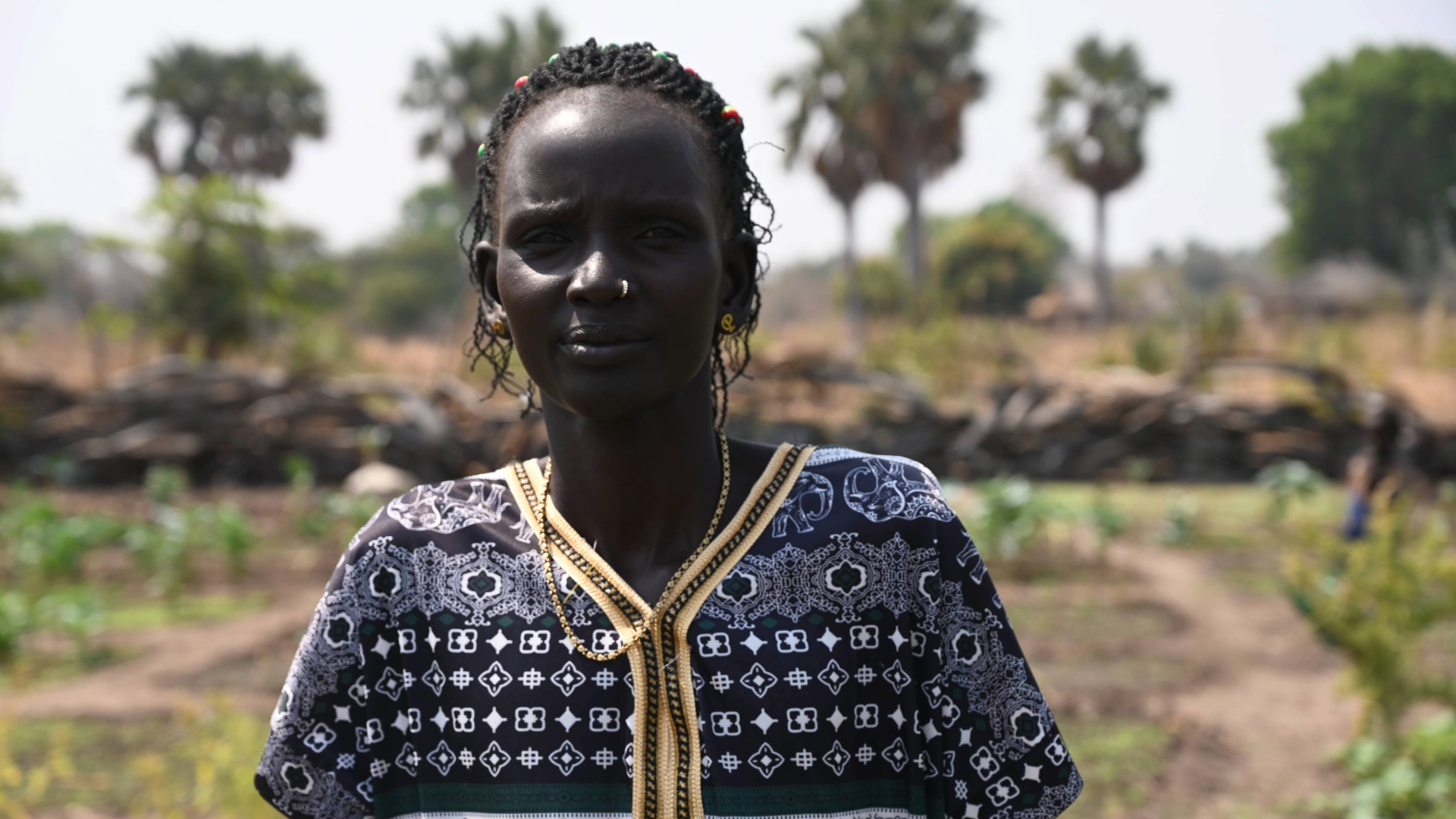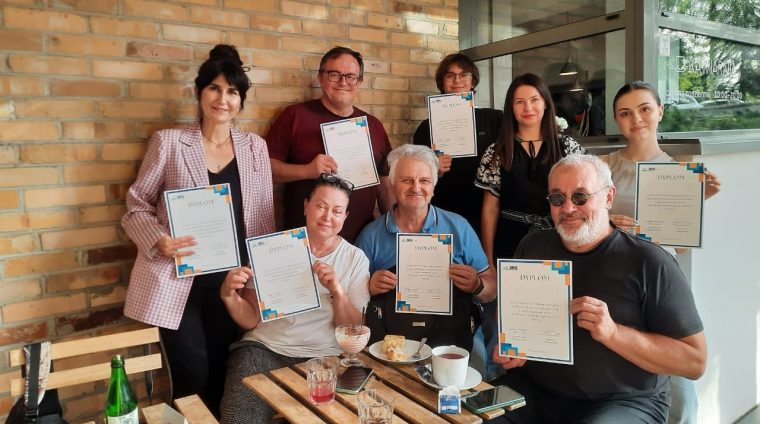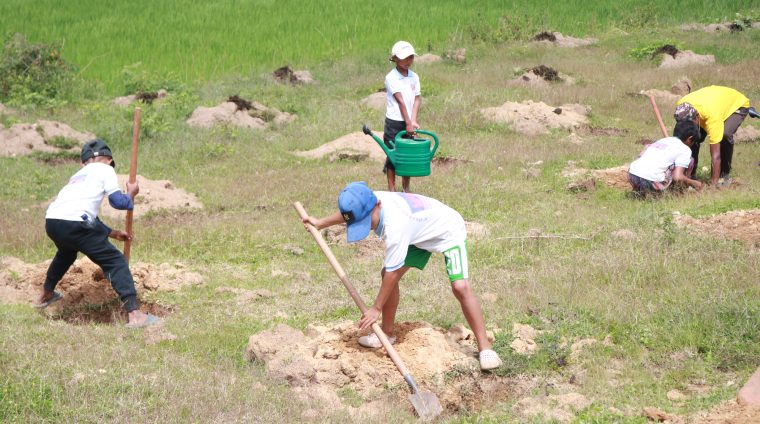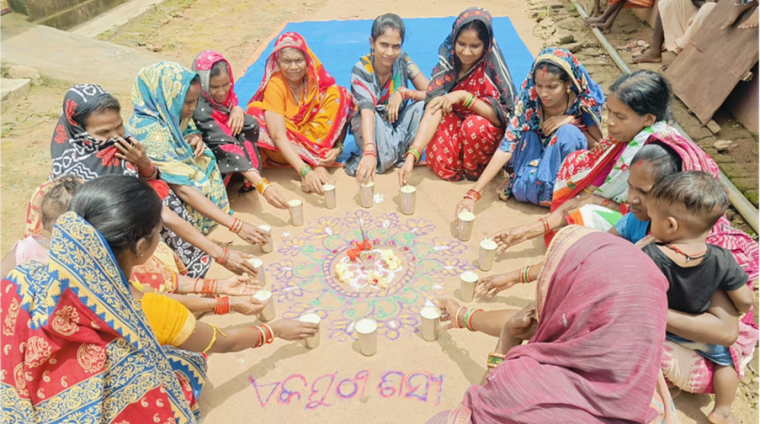A mother of six in South Sudan is able to grow vital crops all year round thanks to techniques learnt through a programme supported by Jesuit Missions (JM).
Farmer Martha Nychum Makur, 35, from Rumbek, explained how she and her colleagues now use irrigation to produce food during all seasons.
She was taught these skills at the Multi-Educational and Agricultural Jesuit Institute (MAJIS) in nearby Akol-Jal – a JM partner organisation.
Previously, during the dry season, Martha had relied on pounded dried okra, which she would make into a sauce.
Now, even in periods where rain is scarce, she is still able to produce vibrant and nutritious vegetables, such as pumpkin leaves and Sukuma wiki (spiced collard greens).
Martha praised the impact of MAJIS, particularly when it comes to supporting and celebrating the role of small-scale female farmers in South Sudan.
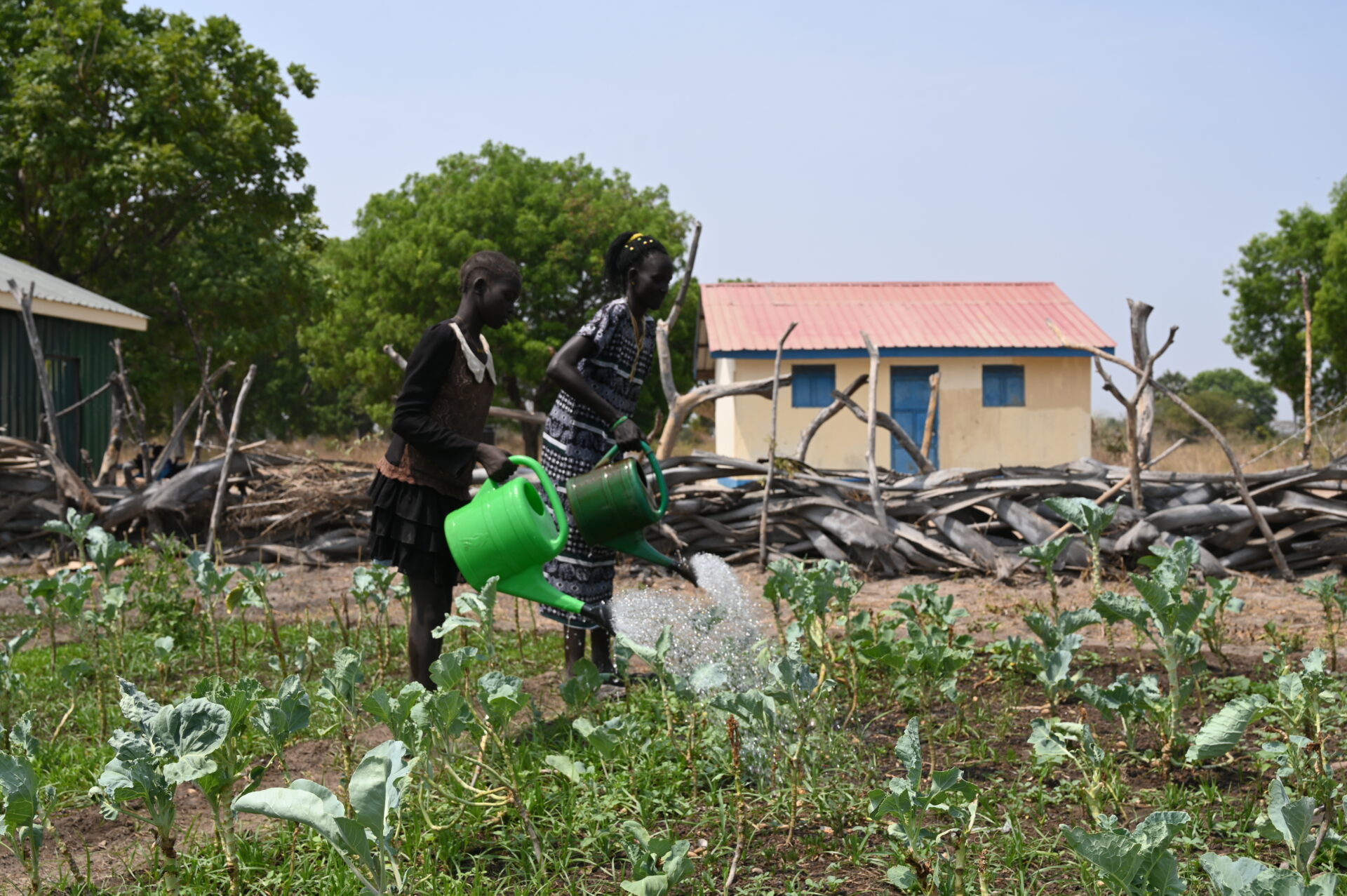
She said: “The project has made a significant contribution to our lives. It has improved my situation by encouraging me to be a hardworking and strong woman.
“The work of irrigation, which I once thought was difficult, has become much easier. We have learned about the power and value of womanhood, and we have been taught how to overcome challenges we once thought were insurmountable.”
Despite the success of the programme, Martha still faces challenges. She currently cannot afford to send all her children to school, meaning some spend their days down at the local cattle camp.
Carrying watering cans and pumping the borehole as part of the irrigation process can be extremely testing. And increased periods of flooding and drought – exacerbated by climate change – have taken a toll on her farmland.
Yet Martha remains positive. She is proud that she can provide some of her children with an education, and buy flour to feed her family, thanks to her vegetable sales. She has secured a pair of goats, both of which are pregnant, and she has ambitions to own a cow.
She said the “love” and “passion” of the community at MAJIS, and input from JM and other organisations, has inspired her to keep moving forwards.
“Thank you all for your unwavering support,” she added. “Although this is a village with limited access to good roads and communication networks, you managed to be with us.”

